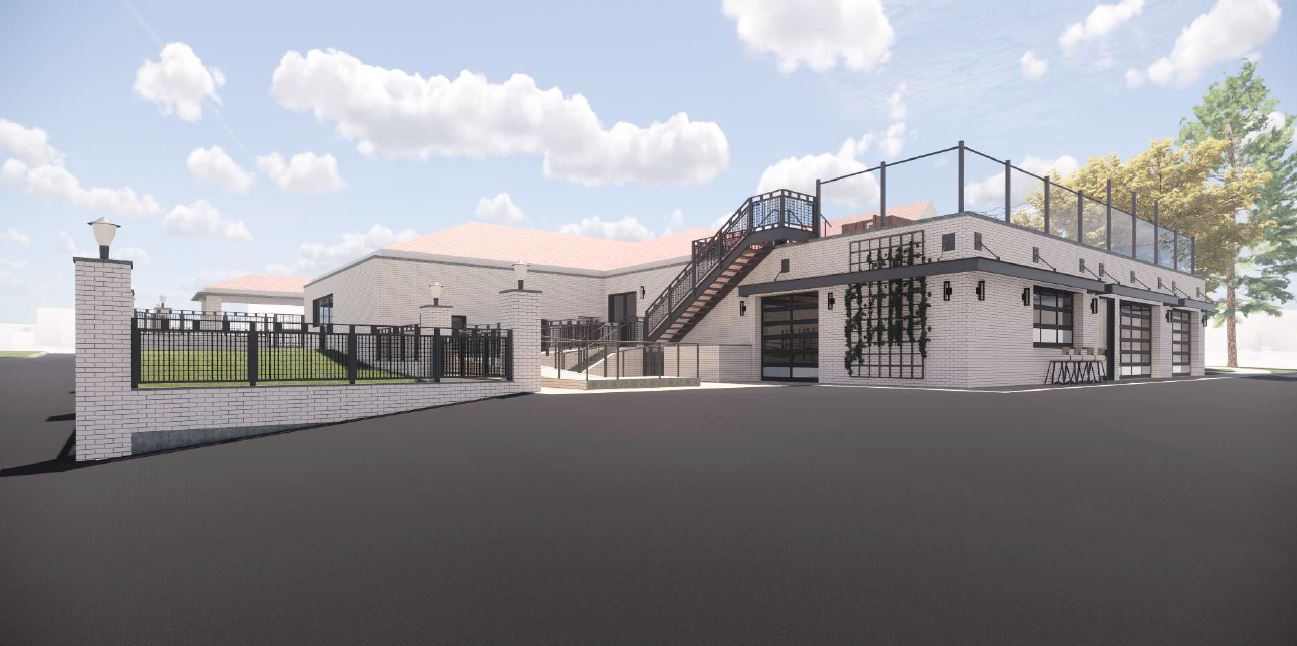Coming Soon
Berkeley Park Campus
Midtown Montessori Academy is thrilled to announce the expansion of our amazing community to a third campus. Midtown Montessori Academy at Berkeley Park will open in 2022, offering authentic Montessori programming to children birth to age 6. This campus will mirror our first campus, Midtown Montessori Academy at Midtown, and will be home to 7 tight-knit communities of children and teachers.
MMA @ Berkeley Park will be located in the historic Berkeley Chapel located at 4345 W 46th Ave, Denver, CO 80212.
We are finalizing details of this new campus with the city of Denver and will be beginning construction this Spring/Summer. Updates on the new campus will be provided via our monthly newsletters as information becomes available.
We will begin accepting Applications for Enrollment for Berkeley Park on Monday, February 15, 2021. Enrollment positions for Berkeley Park will be awarded beginning March/April 2022. Rolling enrollment for Berkeley Park will continue until our program is full for the Fall Semester.
We are very much looking forward to another year of growth and continuing our amazing mission of providing an authentic Montessori education to the Denver metro. Thank you for all you do to make our mission a reality!
Programs Offered:

3 Locations
Where to Find Us
Midtown Montessori Academy
1675 W 67th Ave, Unit 200
Denver, CO 80221
Office: (303) 218 6641
Email: [email protected]
MMA @ Sloan’s Lake
3480 Ames Street
Wheat Ridge, CO 80212
Office: (303) 218 6641
Email: [email protected]
MMA @ Berkeley Park
COMING SOON
4345 W. 46th Ave
Denver, CO 80211
Office: (303) 218 6641
Email: [email protected]
FAQ
Frequently Asked Questions
The Montessori Method of education, developed by Dr. Maria Montessori, is a child-centered educational approach based on scientific observations of children from birth to adulthood. Dr. Montessori’s Method has been time tested, with over 100 years of success in diverse cultures throughout the world.
It is a view of the child as one who is naturally eager for knowledge and capable of initiating learning in a supportive, thoughtfully prepared learning environment. It is an approach that values the human spirit and the development of the whole child—physical, social, emotional, cognitive.
Hallmarks of Montessori
Components necessary for a program to be considered authentically Montessori include multiage groupings that foster peer learning, uninterrupted blocks of work time, and guided choice of work activity. In addition, a full complement of specially designed Montessori learning materials are meticulously arranged and available for use in an aesthetically pleasing environment.
The teacher, child, and environment create a learning triangle. The classroom is prepared by the teacher to encourage independence, freedom within limits, and a sense of order. The child, through individual choice, makes use of what the environment offers to develop himself, interacting with the teacher when support and/or guidance is needed.
Multiage groupings are a hallmark of the Montessori Method: younger children learn from older children; older children reinforce their learning by teaching concepts they have already mastered. This arrangement also mirrors the real world, where individuals work and socialize with people of all ages and dispositions.
Dr. Montessori observed that children experience sensitive periods, or windows of opportunity, as they grow. As their students develop, Montessori teachers match appropriate lessons and materials to these sensitive periods when learning is most naturally absorbed and internalized.
In early childhood, Montessori students learn through sensory-motor activities, working with materials that develop their cognitive powers through direct experience: seeing, hearing, tasting, smelling, touching, and movement.
In the elementary years, the child continues to organize his thinking through work with the Montessori learning materials and an interdisciplinary curriculum as he passes from the concrete to the abstract. He begins the application of his knowledge to real-world experiences.
This organization of information—facts and figures—prepares the child for the world of adolescence, when thought and emotion evolve into understanding more abstract, universal concepts such as equity, freedom, and justice.
Montessori education offers our children opportunities to develop their potential as they step out into the world as engaged, competent, responsible, and respectful citizens with an understanding and appreciation that learning is for life.
- Each child is valued as a unique individual. Montessori education recognizes that children learn in different ways, and accommodates all learning styles. Students are also free to learn at their own pace, each advancing through the curriculum as he is ready, guided by the teacher and an individualized learning plan.
- Beginning at an early age, Montessori students develop order, coordination, concentration, and independence. Classroom design, materials, and daily routines support the individual’s emerging “self-regulation” (ability to educate one’s self, and to think about what one is learning), toddlers through adolescents.
- Students are part of a close, caring community. The multi-age classroom—typically spanning 3 years—re-creates a family structure. Older students enjoy stature as mentors and role models; younger children feel supported and gain confidence about the challenges ahead. Teachers model respect, loving kindness, and a belief in peaceful conflict resolution.
- Montessori students enjoy freedom within limits. Working within parameters set by their teachers, students are active participants in deciding what their focus of learning will be. Montessorians understand that internal satisfaction drives the child’s curiosity and interest and results in joyous learning that is sustainable over a lifetime.
- Students are supported in becoming active seekers of knowledge. Teachers provide environments where students have the freedom and the tools to pursue answers to their own questions.
- Self-correction and self-assessment are an integral part of the Montessori classroom approach. As they mature, students learn to look critically at their work, and become adept at recognizing, correcting, and learning from their errors.
Given the freedom and support to question, to probe deeply, and to make connections, Montessori students become confident, enthusiastic, self-directed learners. They are able to think critically, work collaboratively, and act boldly—a skill set for the 21st century.